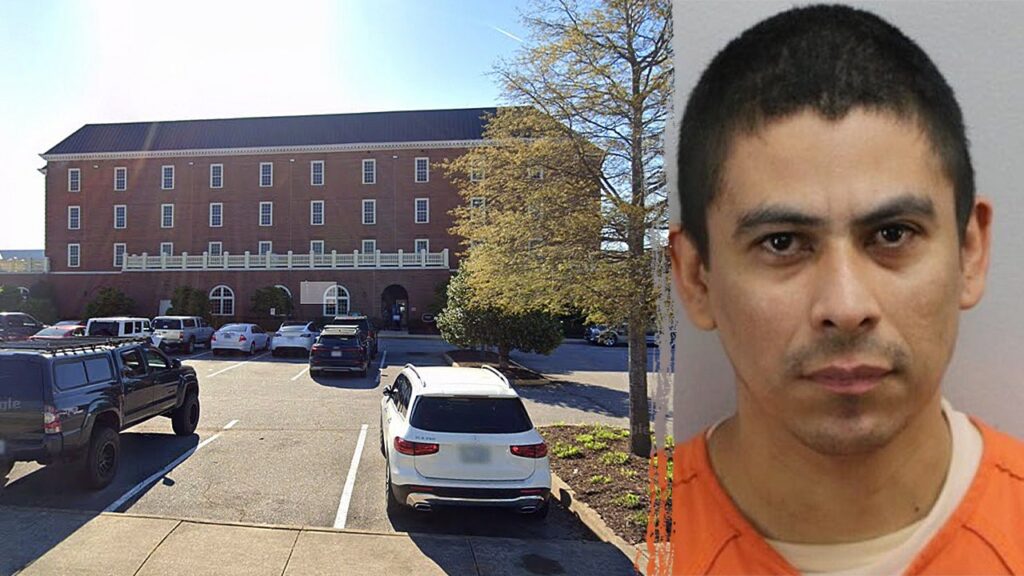| Article Subheadings |
|---|
| 1) Overview of the Case |
| 2) Sentencing and Judicial Remarks |
| 3) Political Reactions |
| 4) Immigration and Law Enforcement Implications |
| 5) Background of the Accused |
In a harrowing case that has shocked the Virginia Beach community, Ricardo Leonel Mejia, an undocumented immigrant from El Salvador, has been sentenced to 30 years in prison for the repeated sexual abuse of an 11-year-old girl. This sentence, handed down by a Virginia Beach judge, comes after a series of traumatic incidents that highlighted vulnerabilities within both the legal and immigration systems. The case has ignited intense discussion among state leaders regarding the cooperation between local law enforcement and federal immigration authorities, drawing attention to ongoing debates about immigration policy in Virginia.
Overview of the Case
The disturbing details of this case came to light following the conviction of Mejia, who was found guilty of several charges, including multiple counts of rape of a child under 13. The incidents occurred in 2024 while Mejia was employed to renovate a bathroom in the victim’s home. The abuse was uncovered when the girl’s mother found him in her daughter’s bed, having forced open a locked door. This incident marked the beginning of a legal battle that would not only determine Mejia’s fate but also spark broader discussions on immigration and public safety.
Sentencing and Judicial Remarks
Following a thorough examination of the evidence, the court sentenced Mejia to 30 years of imprisonment, stating that such violent offenses require stringent consequences. During the sentencing ceremony, Mejia addressed the court, offering an apology to the victim for the pain he caused, reflecting on his own hardships.
“I know I am not the only one experiencing hard times. I’m sorry for the pain she is going through in this process,”
he stated, acknowledging the gravity of his actions. His remorseful comments were met with skepticism, as many in the courtroom questioned the sincerity of his apology given the nature of his crimes.
Political Reactions
The sentencing of Mejia has prompted a wave of political responses among Virginia’s leaders. Abigail Spanberger, a Democratic candidate for governor, expressed a commitment to revising immigration enforcement policies that could potentially protect individuals like Mejia. This proposal aims to establish Virginia as a “sanctuary state,” where state and local law enforcement would limit cooperation with federal immigration agencies, particularly in cases involving persons convicted of serious crimes. In stark contrast, Republican gubernatorial candidate Winsome Earle-Sears voiced her disgust over the proposed policies, stating through a post that she was “sickened beyond words” by the notion of limited cooperation in cases involving dangerous criminals.
Immigration and Law Enforcement Implications
The case has triggered a broader examination of immigration protocols and their intersection with local law enforcement practices. U.S. Immigration and Customs Enforcement (ICE) has issued a detainer for Mejia, confirming that he was living in the country unlawfully. After serving his sentence at the Virginia Department of Corrections, he will be transferred to ICE custody for further proceedings. This situation has reignited the contentious debate over the role of law enforcement in immigration issues, illustrating the complexities of current policies that sometimes pit community safety against the rights of undocumented immigrants.
Background of the Accused
Ricardo Leonel Mejia, aged 35, was originally detected in the United States under questionable circumstances. The charges against him involved severe crimes against a minor, including statutory burglary, indecent liberties with a child, and repeated rape. Records show that he was booked into the Virginia Beach Correctional Center on October 9, 2024, shortly after the allegations surfaced and the criminal investigation began. The authorities confirmed that Mejia had fled from the scene through a window after the assaults and had to be identified and apprehended later. This aspect of the investigation raises questions about the effectiveness of preemptive measures in protecting vulnerable populations from such predators.
| No. | Key Points |
|---|---|
| 1 | Ricardo Mejia has been sentenced to 30 years for the repeated sexual assault of an 11-year-old girl. |
| 2 | The abuse was discovered after the victim’s mother found Mejia in her daughter’s bed. |
| 3 | Political leaders are divided on immigration enforcement policies following the case. |
| 4 | Mejia will be transferred to ICE custody following his prison term. |
| 5 | Mejia has a history of living illegally in the United States. |
Summary
The conviction of Ricardo Leonel Mejia serves not only as a stark reminder of the challenges faced in protecting vulnerable children but also illuminates the complexities surrounding immigration policy within the context of public safety. As debate continues among policymakers in Virginia, this case underscores the critical need for comprehensive approaches that prioritize the well-being of communities while addressing the nuances of immigration status and law enforcement cooperation. The implications of this sentencing will likely resonate far beyond the courtroom, impacting discussions on immigration and law enforcement practices for years to come.
Frequently Asked Questions
Question: What charges did Mejia face?
Mejia was convicted of multiple charges, including raping a child under 13, indecent liberties with a minor, and statutory burglary.
Question: What will happen to Mejia after his prison sentence?
After serving his sentence at the Virginia Department of Corrections, Mejia will be transferred to ICE custody for further proceedings regarding his immigration status.
Question: How has the community reacted to Mejia’s case?
The case has sparked intense political debate in Virginia regarding immigration enforcement and the role of local law enforcement in cooperating with federal agencies.


